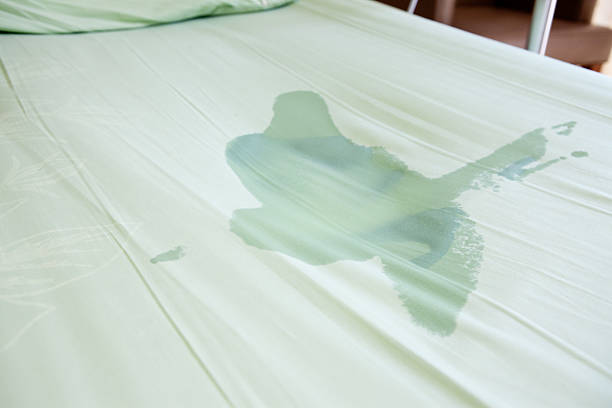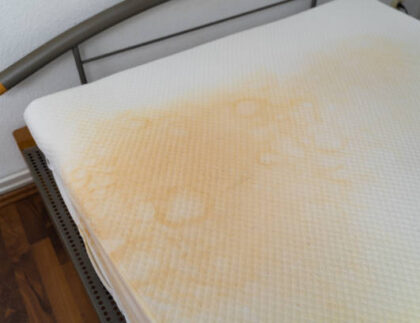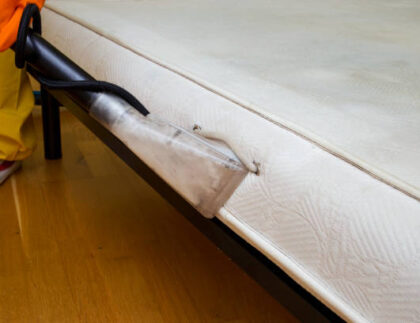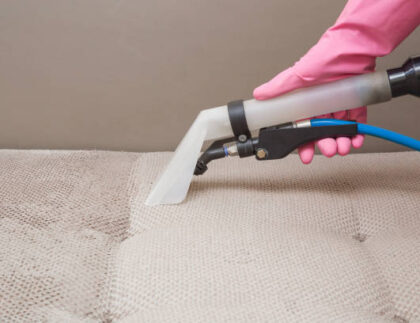
Mattresses are a crucial element of our daily life, providing comfort and support for our restful sleep. However, accidents such as spills, sweat, and even urine can make their way into our mattresses, with the potential to create a host of hygiene and health-related concerns. This article aims to explore the dangers associated with urine in mattress covers, their implications for health, and how to mitigate these risks.
The Dangers of Urine in Mattress Cover
When urine seeps into a mattress cover, it is not just about the unpleasant odor or stains; it goes beyond that. Urine contains a range of substances such as urea, urobilin/urobilinogen, uric acid, ammonia, hormones, dead blood cells, salts, minerals, and toxins. If left untreated, these substances can create an environment conducive for the growth of harmful bacteria and molds, potentially leading to a range of health problems.
Potential Health Risks:
- Respiratory Issues: Urine, when left untreated, can encourage the growth of molds and bacteria. Some of these microbes, such as Aspergillus, Penicillium, and Cladosporium, can release spores into the air, which, when inhaled, can trigger allergies, asthma attacks, and other respiratory issues.
- Skin Infections: Contact with a urine-soaked mattress can expose the skin to harmful pathogens. These can cause various infections and conditions, such as dermatitis, rashes, and in severe cases, cellulitis.
- Urinary Tract Infections: For people who spend a lot of time in bed, such as the elderly or those with mobility issues, repeated exposure to a urine-soaked mattress can increase the risk of urinary tract infections (UTIs).
- Sleep Disruption: The foul odor from a urine-stained mattress can disrupt a good night’s sleep, leading to sleep deprivation and associated health issues like obesity, cardiovascular disease, and impaired cognitive function.
Mitigating the Risks:
- Regular Cleaning: Regular cleaning of mattress covers is essential to prevent urine accumulation. This process should involve the use of enzymatic cleaners designed to break down urine compounds and effectively neutralize the odor.
- Waterproof Mattress Covers: A waterproof mattress cover can provide a barrier against urine, preventing it from seeping into the mattress. These covers are machine washable, making them easy to clean.
- Prompt Action: In the case of urine spills, it’s important to act promptly. The sooner the urine is cleaned up, the less likely it will have a chance to penetrate the mattress or provide a breeding ground for bacteria and mold.
- Professional Cleaning: Sometimes, the situation may require professional help, especially when the urine has deeply penetrated the mattress. Professional cleaners have the necessary equipment and expertise to thoroughly clean and sanitize the mattress.
The issue of urine in mattress covers goes beyond mere inconvenience. It carries a range of potential health hazards, from respiratory issues and skin infections to urinary tract infections and sleep disruptions. But by implementing good hygiene practices, using appropriate protective materials, and acting promptly, we can mitigate these risks and ensure our mattresses remain a safe haven for restful sleep.
Questions and Answers
Q: Is dried urine harmful?
A: Yes, dried urine can be harmful. When urine dries, it can leave behind concentrated levels of toxins and substances such as urea, urobilinogen, uric acid, and salts. These can harbor bacteria or mold, which can cause a range of health issues if they are inhaled or come into contact with the skin. Furthermore, the crystallized salts in dried urine can trigger allergic reactions in some people. It’s essential to clean and sanitize areas affected by urine thoroughly to mitigate these risks.
Q: How does dried urine affect indoor air quality?
A: Dried urine can negatively impact indoor air quality. As it dries, urine can release ammonia into the air, which can be irritating to the eyes, nose, and throat in higher concentrations. Moreover, dried urine can facilitate the growth of bacteria and molds that can release spores into the air, potentially causing respiratory issues or allergic reactions.
Q: Can dried urine cause infections?
A: Yes, dried urine can potentially cause infections. The bacteria that can grow in dried urine may come into contact with the skin and cause a range of skin infections, including dermatitis and cellulitis. In severe cases, these bacteria can even lead to urinary tract infections, especially in individuals who are bedridden or have compromised immune systems.
Q: Is dried urine harmful to pets?
A: Yes, dried urine can also be harmful to pets. Just like humans, pets can experience respiratory issues or skin infections due to the bacteria and molds that can grow in dried urine. Moreover, the ammonia released by dried urine can be harmful to pets’ respiratory systems.
Q: How should dried urine be cleaned?
A: Dried urine should be cleaned thoroughly to ensure all harmful substances are removed. The use of enzymatic cleaners is recommended, as these are designed to break down urine compounds and effectively neutralize odors. For large or deep urine stains, professional cleaning may be necessary. In the case of mattresses or furniture, using a waterproof cover can prevent urine from seeping in and making the issue more complex.



